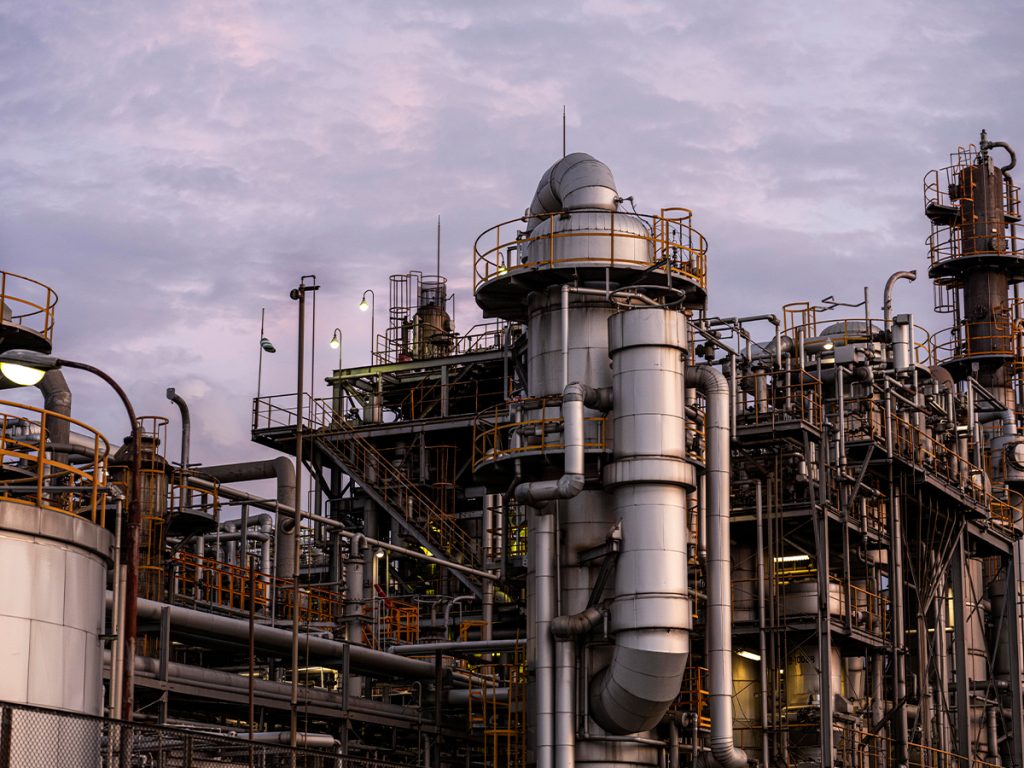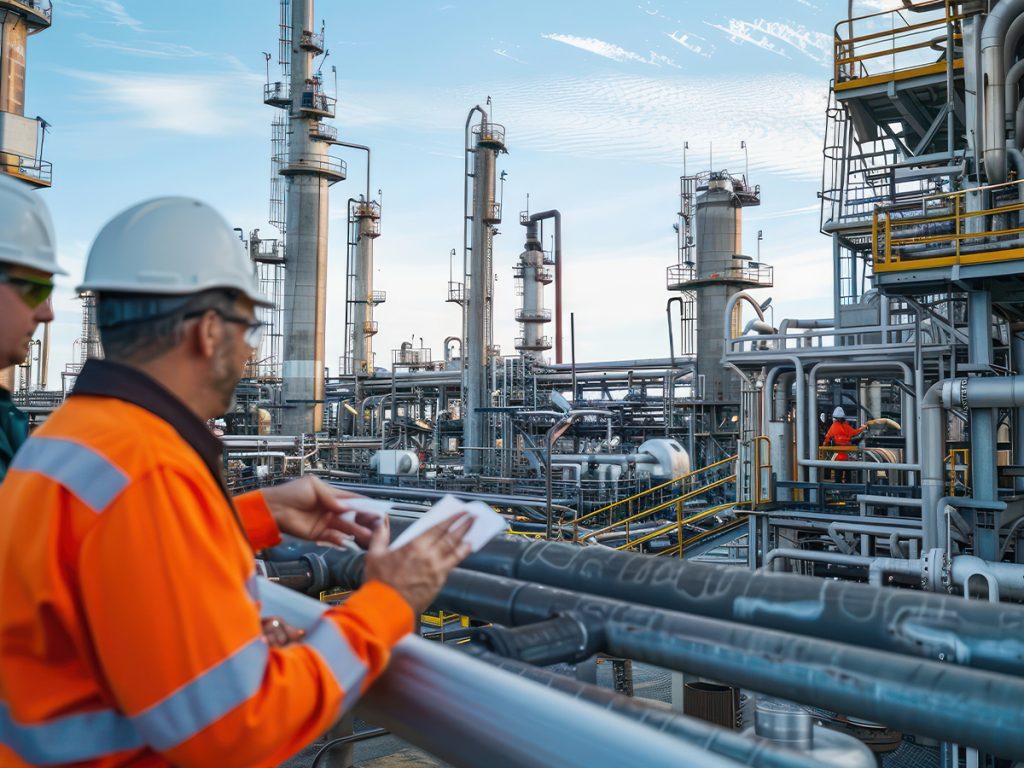In the rapidly advancing energy and industrial sector, Petrochemicals Erection Commissioning In Oman has become a cornerstone of safe, efficient, and reliable plant operations. The petrochemical industry relies on precision, rigorous testing, and adherence to global standards to ensure every facility runs at peak performance. From design validation to readiness, erection and commissioning define the success of multimillion-dollar projects, making this phase critical for long-term sustainability.

What is erection and commissioning?
Erection and commissioning represent two closely linked stages in industrial plant development. Erection refers to the installation of equipment, pipelines, electrical systems, and instrumentation according to design specifications. It ensures that every pump, compressor, reactor, and exchanger is placed, aligned, and connected correctly.
Commissioning, on the other hand, involves testing, calibration, and performance verification once installation is complete. It validates whether equipment and systems operate safely, efficiently, and in accordance with design intent. In petrochemicals, this process is particularly critical, given the complexity of units like distillation columns, reformers, and cracking furnaces.
Together, erection and commissioning provide assurance that a plant is not only mechanically complete but also operationally sound.
What is the difference between commissioning and pre-commissioning?
The terms pre-commissioning and commissioning are often confused, but they describe distinct phases:
- Pre-commissioning: This stage occurs after erection but before the actual introduction of feedstock. It includes flushing pipelines, cleaning equipment, verifying electrical continuity, and testing control loops. Pre-commissioning ensures the system is clean, safe, and ready for operations.
- Commissioning: This stage involves energizing systems, running equipment under controlled conditions, testing interlocks, and verifying safety systems. In petrochemical projects, commissioning often culminates with the introduction of feedstock into the process units, marking the beginning of actual production.
While pre-commissioning is about preparation, commissioning is about performance validation. Both are essential for minimizing risks and ensuring operational readiness.
What are the three types of commissioning?
Commissioning can be categorized into three primary types, each serving a unique purpose:
- Initial Commissioning
Performed when a new plant or unit is being introduced for the first time. It involves baseline testing, safety validation, and system optimization before production begins. - Re-Commissioning
This is carried out when an existing plant undergoes major modifications or retrofits. It ensures that upgrades or replacements are fully integrated with existing systems and deliver expected outcomes. - Retro-Commissioning
This type applies to older facilities that were never commissioned properly or need optimization after years of operation. Retro-commissioning focuses on identifying inefficiencies, improving safety compliance, and boosting overall performance.
In petrochemicals, all three types play a role, depending on whether the project involves a greenfield plant, an expansion, or modernization.
What is the main purpose of commissioning?
The core purpose of commissioning is to ensure that a plant is safe, efficient, and compliant with global standards before it enters full-scale production. Specific objectives include:
- Safety Assurance: Verifying interlocks, alarms, and emergency shutdown systems.
Performance Validation: Ensuring flow rates, pressures, and temperatures meet design expectations.
Regulatory Compliance: Aligning with ISO, ASME, and API standards, as well as local environmental laws. - Operational Reliability: Training operators, refining SOPs, and reducing the risk of breakdowns.
For petrochemical facilities, commissioning is more than a technical requirement; it is a guarantee of long-term profitability and reduced downtime.
Key Steps in Petrochemical Erection and Commissioning
To deliver a successful project, companies follow a structured process:
- Detailed Planning: Establish timelines, safety protocols, and resource allocation.
Mechanical Completion: Verify that all installation work is finished, with documentation to prove compliance.
Pre-Commissioning Checks: Flushing, cleaning, and calibrating instruments to prepare for startup.
Cold Commissioning: Testing systems without introducing process fluids. - Hot Commissioning: Introducing feedstock and running the plant under operational conditions.
Performance Guarantee Runs: Validating that the plant meets design efficiency and output requirements. - Final Handover: Transitioning the plant to operators with full documentation and training.
Each step demands skilled teams, robust procedures, and strict adherence to international standards.
Challenges in Project Commissioning & Execution
Commissioning large petrochemical plants in Oman presents several challenges:
- Complex Equipment: Handling large rotary machines, cracking units, and distillation towers.
- Safety Risks: Flammable chemicals and high pressures require stringent protocols.
- Regulatory Pressure: Projects must comply with both local Omani standards and global benchmarks.
- Time Constraints: Delays can lead to significant financial losses.
- Coordination Needs: Multiple contractors, vendors, and teams must work seamlessly.
Companies overcome these challenges by relying on specialized expertise and advanced project management strategies.
Industry Role of Contractors and Maintenance
Successful projects rely heavily on the expertise of Petrochemicals Erection commissioning contractors. These specialists handle planning, execution, and supervision of the entire process, ensuring that every stage, from mechanical completion to performance runs, is flawless.
Once operational, plants require periodic upkeep through Petrochemicals Erection commissioning maintenance services. Preventive measures, inspections, and timely interventions extend the lifespan of machinery, reduce downtime, and improve overall efficiency.
Specialized service providers such as a Petrochemicals Erection commissioning maintenance Contractor play a vital role in ensuring long-term reliability of equipment. Their involvement ensures smooth transitions between erection, commissioning, and ongoing maintenance.

Benefits of Erection & Commissioning
The process offers significant advantages:
- Safety and Compliance: Meets stringent safety and environmental standards.
- Operational Efficiency: Reduces unplanned downtime and energy losses.
- Cost Optimization: Prevents costly breakdowns and emergency repairs.
Sustainability: Enhances environmental performance through optimized systems. - Reliability: Builds confidence among stakeholders and investors.
When executed properly, it ensures that projects achieve their intended ROI while aligning with global best practices.
Future of Petrochemical Commissioning in Oman
Oman’s industrial sector continues to grow as part of its economic diversification strategy. Massive investments in downstream projects, refineries, and petrochemicals make commissioning services more vital than ever.
Emerging trends include:
- Digital Commissioning Tools: Using IoT, AI, and digital twins for predictive monitoring.
Sustainability Integration: Aligning with ESG goals and reducing carbon footprints. - Skill Development: Training Omani engineers and technicians for specialized roles.
The demand for expert service providers will increase, creating opportunities for both local and global contractors.
Frequently Asked Questions (FAQs)
Q1. What is the commissioning process?
The commissioning process involves verifying and testing all systems, equipment, and safety mechanisms in a petrochemical plant to ensure they operate according to design specifications. It bridges the gap between construction and operational startup, ensuring safety, efficiency, and compliance with industry standards.
Q2. What are the 7 steps of commissioning?
The seven key steps in commissioning typically include:
- Detailed planning
- Mechanical completion check
- Pre-commissioning activities
- Cold commissioning
- Hot commissioning
- Performance guarantee runs
- Final handover and documentation
These steps ensure that the plant transitions smoothly from construction to full operational performance.
Q3. What is the GST rate for erection and commissioning?
The GST (Goods and Services Tax) rate for erection and commissioning services varies by country and jurisdiction. In Oman, VAT and service tax regulations may apply depending on the type of contract and project structure. It’s recommended to consult with a certified tax advisor or government authority for the most accurate rates.
Q4. What are the five levels of commissioning?
Commissioning is often categorized into five levels for structured execution:
- Pre-commissioning – System cleaning, flushing, and verification before startup.
- Mechanical Completion – Ensuring all equipment and piping are installed as per design.
- Cold Commissioning – Testing without introducing process fluids.
- Hot Commissioning – Introducing feedstock and verifying operational parameters.
- Performance Commissioning – Ensuring the plant meets efficiency, safety, and production targets.
Ensuring Efficiency, Safety, and Growth
The success of any petrochemical facility depends on precision, expertise, and strict adherence to safety and performance standards. Petrochemicals Erection Commissioning In Oman represents not only a technical milestone but also a foundation for operational excellence and long-term profitability.
With the support of experienced contractors and structured maintenance strategies, Oman’s petrochemical sector is poised for sustainable growth, delivering efficiency and innovation to the global market.
